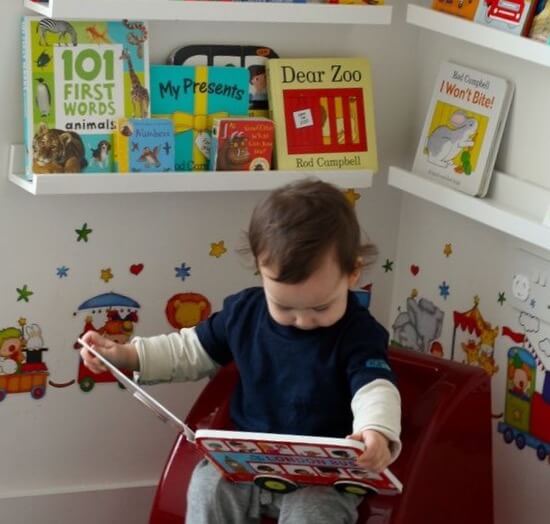10 Tips To Teach Your Child How To Speak

“Mom” and “dad” will undoubtedly be your little one’s first words. However, as they grow older, the question arises: How can you teach your child how to speak?
Tips to teach your child how to speak
Read with them from a young age
Science has proven that when parents make reading a habit in their children’s lives and read to them from an early age, it’s easier to teach their child how to speak.
Children learn to see verbal communication naturally and pay attention to sentence structure. They become sponges that absorb words very easily.
Sing songs with them
There are many children’s songs that have been created specifically to promotes a child’s development.
Repeated songs and phrases are recorded in their minds. Little by little, songs can help children learn how to speak.
It isn’t uncommon to find babies who can barely talk but already know how to hum children’s songs. Their impressive retention ability always generates a huge smile of admiration on adults’ faces.
Speech is the representation of the mind and writing is the representation of speech
-Aristotle-
Ask questions
It’s very interesting how the use of questions can help our children learn to speak. Questions can also help them expand their vocabulary.
Questions such as “Do you want to eat an apple or a banana?” are especially useful.
Give them time to express themselves in their own words
As children start to speak and communicate with others, they’ll start pointing out objects that interest them. They might try to ask us for a toy with the use of their hands or try to pronounce the toy’s name for example.
When this occurs, we should repress the desire to give them the object they’re asking for until the child pronounces it. This way they’ll relate their speech with a prize.

Don’t talk too much
If you want to teach your child how to speak, as we stated previously, it’s important to wait patiently for them to pronounce what they mean without helping them.
For example, we can ask: “What did your grandparents give you?” If the child doesn’t respond immediately, give them some time to respond without precipitating the response.
If we talk to our children non-stop, we don’t give them a chance to talk. When faced with this kind of behavior, the child simply gets tired and won’t say a single word.
Use proper grammar
It isn’t good nor is it beneficial to teach a child how to speak using weak vocabulary or words that aren’t pronounced correctly. When this happens, the child will simply copy the words and phrases they’ve been taught.
Speaking correctly doesn’t mean we have to speak complexly; on the contrary, we should use simple sentences that the child can understand.
He who speaks in a way that everyone always understands him, speaks well
Encourage indirectly
When a child utters a single word, we can simply add other words to create a phrase. This will help expand their vocabulary. For example, if the child says “apple”, we can add “the apple is very good.”
Adapt your vocabulary to their age
Although we use common language and vocabulary, in order to teach your children how to speak, you should use phrases that are appropriate for their age. Short, simple and specific phrases can be a great help in their language development.
Create an environment that promotes learning
Designate a space in the home, such as your child’s room, for their development and learning. This will allow them to feel comfortable and creative. It will also help to expand their vocabulary.

Always value their achievements
Always keep in mind that we must celebrate all of their achievements when it comes to their vocabulary, no matter how small the achievement may be.
If you put all of these tipis into practice and you’re a little patient, you’ll have the satisfaction of teaching and seeing your children speak.
All cited sources were thoroughly reviewed by our team to ensure their quality, reliability, currency, and validity. The bibliography of this article was considered reliable and of academic or scientific accuracy.
- VV.AA Estimulación del lenguaje oral en educación infantil. Gobierno Vasco.
- Jesús Jarque: Estimulación del lenguaje (Folleto de ayuda para padres y madres).
This text is provided for informational purposes only and does not replace consultation with a professional. If in doubt, consult your specialist.








